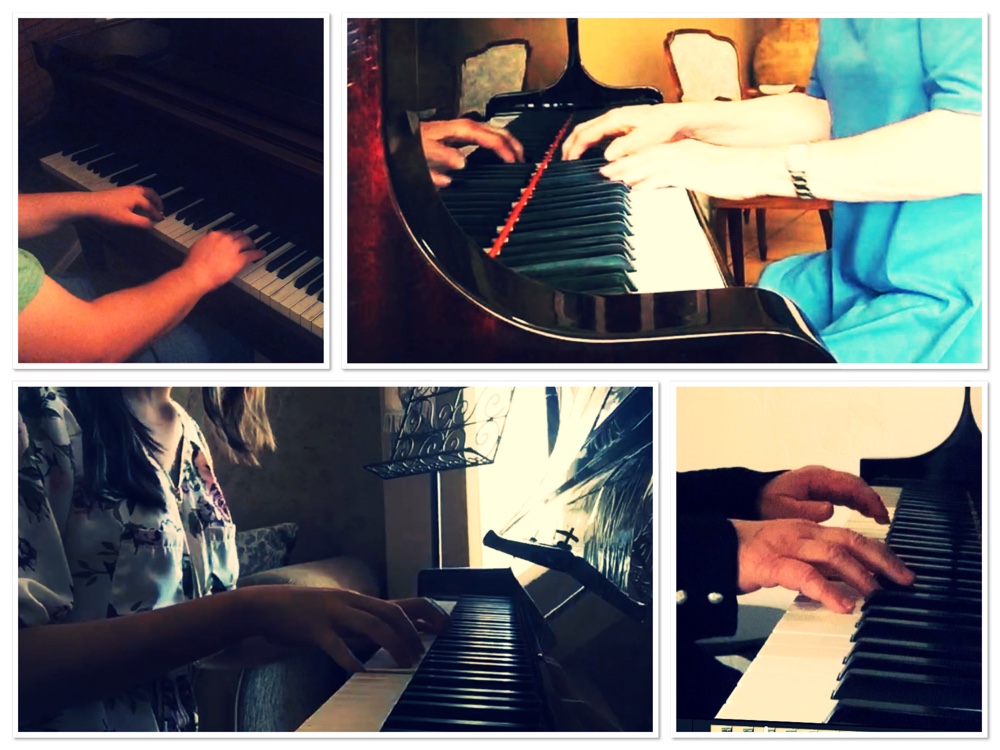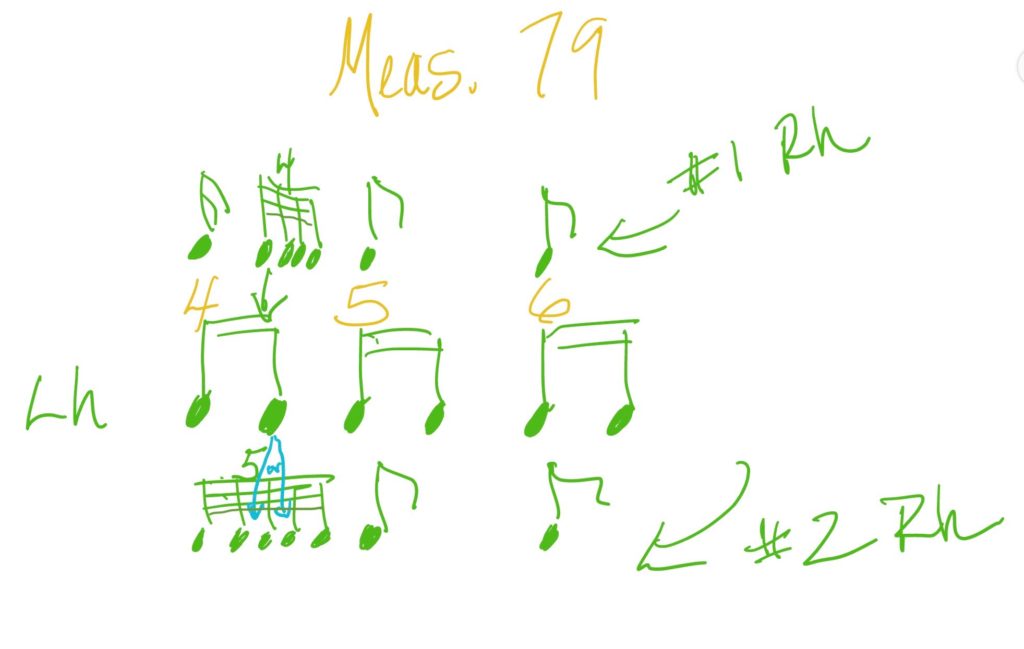Minimize Your Online Lesson Fatigue

A three year old friend of mine and her family came over for playtime and dinner. She had a total meltdown just before we sat down to eat. Her Dad took her into my studio to calm her. I heard him say, Find your center. That’s it find your center. She gulped through her sobs, I can’t find my center. I have a big booger!
We are all having trouble finding our centers lately as online teaching and learning take their toll. Zoom fatigue is a real thing. Why is Zoom So Exhausting? Students and families, especially teens and adults, are spending long hours online. Weeks of classes, homework, preparation, yoga, dance, piano lessons, staying in touch with extended family, even dog training—are all adding up.
Here are some things I have learned trying to manage my online lessons. They really do help me minimize online lesson fatigue. The glitchy interwebs all day yesterday? Out of my control.
Build Breaks Into Your Schedule And Stick To Them
I’ve said this before. I can’t stress it enough. Allow more time between students and keep your boundaries clear. Advice for Balancing Family and Profession When Working Remotely I had to deal with a new wrinkle this week though. Yup early arrivals. Don’t let families pressure you by entering the waiting room or calling you 15 minutes early.
One of my students arrived nearly 20 minutes early. I immediately sent a message, So great that you are early today. Please take this time to record your Sonatina and send it to me. I had another student create a 16 bar original piece using f harmonic minor and record it while he was waiting. I may need to set up “waiting activities” at the start of each week if this becomes a chronic problem.
Find Some Cool Activities To Help Students De-Stress
We have been doing ear training and playing melody and rhythm copycat. I play first and the student repeats. Then, we turn it around and the student plays and I repeat. We have also been using my Musical Words game (link in top bar under My Fistful of Notes).
I created a 5 Tips Video on games and activities for another blog. The five activities are all flexible and easy to do online at or in between lessons. Hopefully, it should be posted soon! I’ll let you know via PA social media when it is live.
Work On Each Portion Of The Lesson For A Shorter Time
Our brains are full. We are tired and stressed. We get overwhelmed much sooner than when working in person. I need to keep lesson segments shorter than usual. Sometimes you just need to move on even though you aren’t certain the student has totally got it. Then, you can go back to it nearer the end of the lesson or even follow up with a homemade graphic or video example via email or messaging.

Here’s a sketch I made on my iPad for one of my adult students who was having ornament troubles. Not terribly ready for prime time but it did the trick. She said, Oh that’s exactly what we did in my lesson. It sure looked scary at first! Now I know she understands and can choose from the 2 different options as she pleases.
Save Your Voice And Your Ears
Whenever possible on a mobile device use earbuds with an integrated mic. Using a laptop or desktop? Use an external mic. Mute yourself when listening to your student and help students learn to mute themselves when listening to you. (the copycat activity above is great for reinforcing this) If you can, adjust the gain settings so that large chords and pedaling minimize sound glitching within the bounds of your connection. You will need to Google this for advice on your exact set up.
Save Your Brain
Have students send videos of their pieces to you prior to the lesson. The sound and video quality will be much higher in most cases. I find it much less stressful when I can let them know the good stuff they did and can plan exact passages to work on during the lesson. You can also send students a quick graphic or video to help as the situation demands. I don’t have them video every piece by any means and sometimes I just ask for a specific section.
An added bonus is they tend to practice a bit more when they don’t like what they hear and realize they don’t want you to hear it either. A little extra self evaluation is a good thing. We do talk beforehand about what we expect a video to show. After all, expectations are different in a work in progress than a piece that is all polished and shiny. By now, they all have the camera placement down so we don’t need to worry about that thank goodness.


